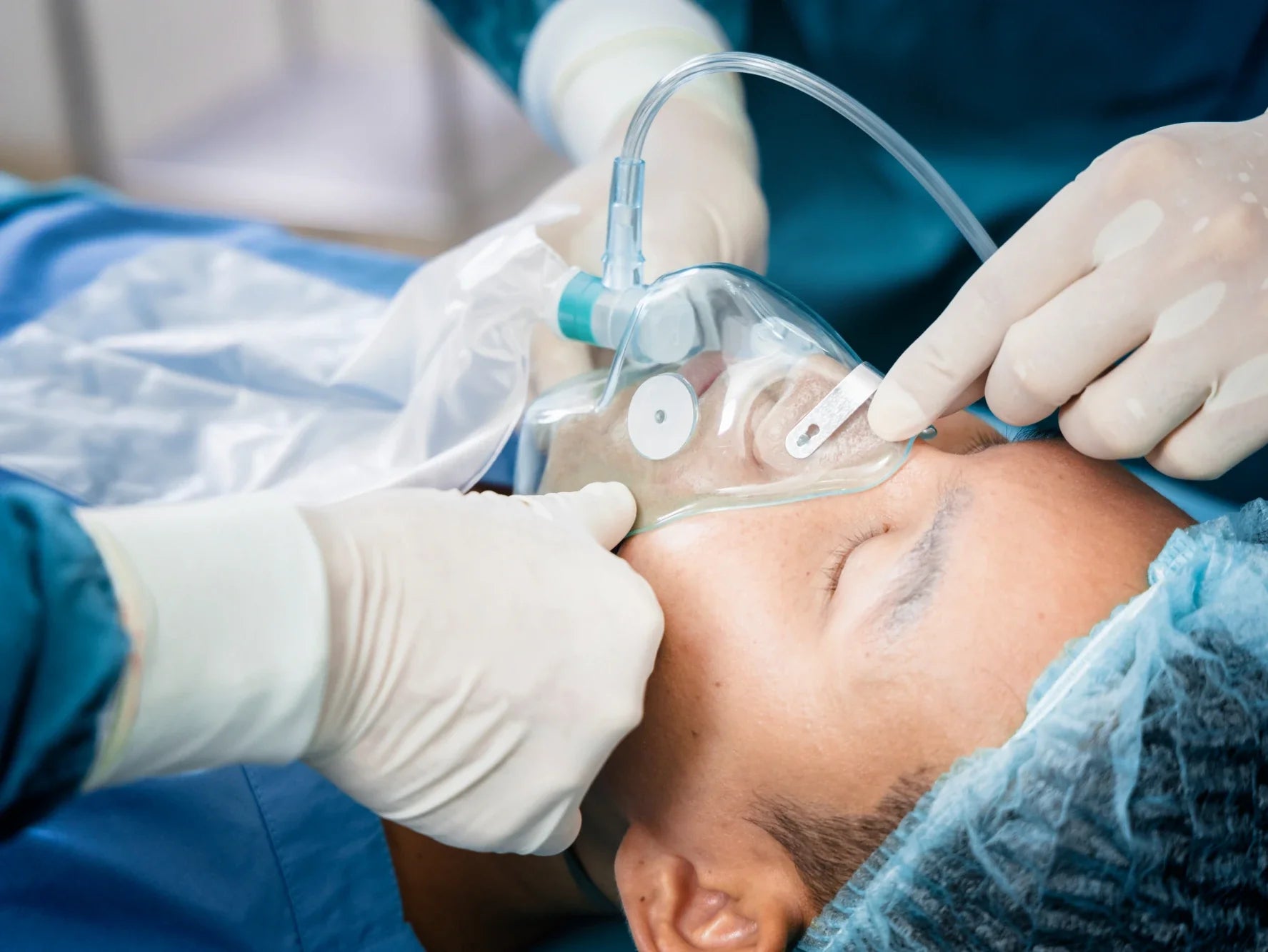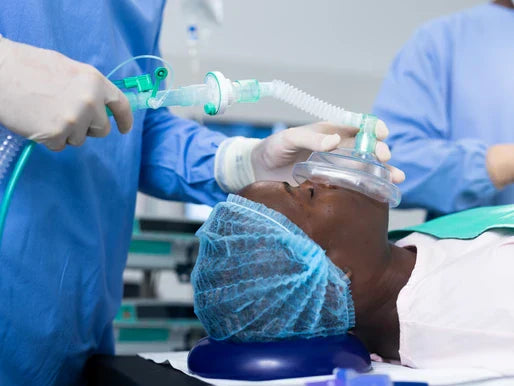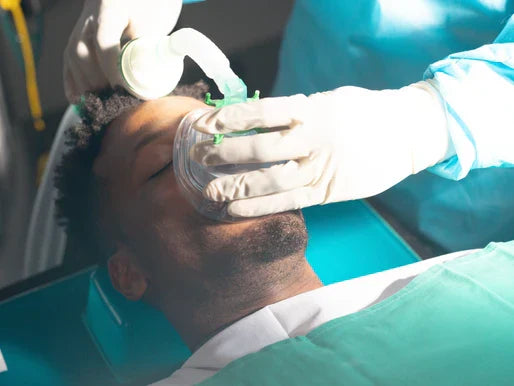

Why Sedation Belongs in Every Dental Practice
If you ask most people what keeps them from the dentist, you’ll hear a common answer: fear. Dental anxiety is widespread — estimates suggest as many as one in three adults avoid the dentist because of fear, discomfort, or past traumatic experiences. This reality has a ripple effect: delayed treatment, worsening oral health, and complex cases that could have been prevented.
For dentists, this presents both a challenge and an opportunity. The challenge is obvious: how do we care for patients who avoid us? The opportunity is more exciting: sedation dentistry provides a way forward, one that benefits patients and providers alike.
Sedation isn’t just about calming a nervous patient — it’s about broadening the scope of your practice, enhancing safety, improving patient experiences, and reinvigorating your own professional satisfaction. When you learn sedation, you’re not just adding a technique. You’re opening the door to an entirely new dimension of dentistry.
Here are the 10 best reasons to learn dental sedation, drawn from both history and modern practice, and why every dentist should seriously consider expanding their training in this area.
1. Step Into a Whole New Area of Dentistry
Sedation is not a minor add-on to dentistry; it’s an entire field of knowledge that expands your professional horizon. By learning sedation, you begin to integrate principles of anesthesiology, pharmacology, and physiology into your daily work.
For many dentists, this represents a refreshing shift. Instead of focusing solely on teeth and restorations, you gain a deeper appreciation for whole-patient care. Sedation training sharpens your ability to monitor vitals, anticipate complications, and use medications confidently. It’s a chance to expand your identity as a provider: not just someone who restores smiles, but someone who ensures comfort and safety in the process.
Put simply, learning sedation means entering a new dimension of dentistry — one that challenges you to think like a physician while still practicing as a dentist.
2. Expand Your Medical Knowledge of Patients
Dentistry doesn’t happen in isolation from the rest of the body. Every patient arrives with a medical history, from hypertension and diabetes to asthma, allergies, or psychological conditions. When you pursue sedation training, you sharpen your ability to interpret and respond to these medical realities.
This knowledge improves your dentistry in countless ways. You become more adept at tailoring treatment plans to medically compromised patients. You gain respect from colleagues in medicine who see you as a partner in systemic care. And most importantly, you give patients confidence that their overall health — not just their teeth — matters to you.
3. Rekindle Your Passion for Dentistry
Sedation is more than a clinical skill — it’s an antidote to professional burnout. Dentistry can be physically and emotionally demanding. Over time, the daily repetition of fillings, crowns, and hygiene checks can dull enthusiasm. But sedation introduces fresh challenges and a renewed sense of purpose.
Dentists often report that learning sedation reinvigorates their love for the profession. Suddenly, anxious patients who once resisted care become grateful, cooperative partners. Procedures that once felt stressful become manageable. Even your staff benefits — when the patients are calmer, the whole team feels less strain.
In short: sedation doesn’t just change your patients’ outlook on dentistry. It changes yours.
4. Manage Complex Procedures With Confidence
Think about the last time you faced a technically demanding case: a difficult extraction, a lengthy implant placement, or a patient requiring multiple procedures in one visit. For many dentists, these situations are high-stress. Sedation transforms them.
With a sedated patient, time feels less rushed. Patients tolerate longer appointments, allowing you to complete more in a single sitting. Movement is minimized, enabling you to work with greater precision. For both you and your patients, what could have been a stressful ordeal becomes a smoother, more predictable process.
Instead of shying away from complex procedures, sedation equips you to embrace them.
5. Keep More Patients In-House
Referral patterns can frustrate both dentists and patients. Without sedation capabilities, many practices must send complex or anxious cases to specialists. That means patients are uprooted from the environment they trust, and practices lose continuity and revenue.
By learning sedation, you can retain more of these patients in-house. Whether it’s a phobic adult needing restorative work, or a child who requires extra comfort, your office becomes the place where care happens — not where care is transferred. Patients appreciate the convenience and consistency, and your practice grows stronger for it.
6. Increase Safety for Medically Compromised Patients
Sedation dentistry is not only about comfort — it’s about safety. Many patients with chronic medical conditions avoid dental care because they fear complications. Sedation-trained dentists can turn that fear into confidence.
Training covers advanced monitoring techniques like reading EKGs, interpreting end-tidal CO₂, and using pulse oximetry. You’ll learn how to adjust medications and protocols for patients with conditions like hypertension or diabetes. You’ll be better prepared to respond in emergencies.
For patients who might otherwise be excluded from safe dental treatment, your skills make all the difference.
7. Provide True Comfort for Adults and Children
Every dentist has seen it: the child who screams in the chair, the adult who grips the armrest with white knuckles, the senior who trembles with fear. These patients aren’t just uncomfortable — they’re often unable to receive the care they need. Sedation changes this.
For children, sedation can transform a potentially traumatic memory into a neutral or even positive one. For adults, it provides relief from years of avoidance. For seniors, it offers comfort during longer procedures. Across the age spectrum, sedation gives you a tool to create more compassionate care experiences.
And when patients associate your practice with comfort, they return — and they refer others.
8. Create Great Appointments for Everyone
Sedation doesn’t just help patients. It improves the entire dental experience for staff and providers.
Anxious patients are more likely to cancel appointments or fail to show up. Sedation reduces those barriers, leading to fewer gaps in your schedule. During treatment, calmer patients make for smoother workflows. Your team feels less stressed, and procedures move more efficiently.
Over time, this creates a cycle of positivity: patients look forward to visits, your team enjoys their work more, and your practice grows through referrals and loyalty.
9. Learn Advanced Techniques, Technologies, and Pharmacology
Sedation dentistry requires mastery of cutting-edge skills and tools. This training gives you far more than basic techniques — it gives you confidence with modern medicine.
You’ll learn how to administer medications via oral, IV, intranasal, intramuscular, and sublingual routes. You’ll gain experience with hand bolusing, IV pumps, and syringe drivers. You’ll practice using advanced monitoring technologies like EKG, pulse oximetry, and end-tidal CO₂ measurement.
Pharmacology training is equally robust. From sedatives like midazolam and triazolam to non-narcotic analgesics and antiemetics, you’ll understand not just how to administer medications but how to integrate them safely and effectively.
This isn’t just dentistry. It’s medicine — and it raises your competence across the board.
10. Elevate Your Commitment to Patient Safety
At its core, sedation dentistry is about patient safety. When you’re trained in sedation, you’re trained to handle emergencies, to anticipate complications, and to respond with confidence.
This focus on safety applies across every dental specialty. Whether you’re performing general dentistry, pediatric procedures, or complex restorative work, sedation knowledge elevates your practice. It positions you as a dentist who doesn’t just treat teeth but safeguards lives.
That commitment builds trust — and trust is the foundation of every great practice.
Take the Next Step
Dental sedation is more than a credential. It’s a pathway to better patient care, safer procedures, stronger practices, and renewed professional fulfillment. Each of the ten reasons outlined here represents not just an advantage, but an invitation: to grow, to lead, and to make dentistry better for patients and providers alike.
At Sedation Consult, we’re here to help you take that step. With accredited courses that blend deep medical knowledge with hands-on clinical training, we prepare dentists and their teams to practice sedation with confidence.
👉 Explore our sedation training courses today — and start transforming the way you and your patients experience dentistry.
Compare Products
| Price |
|---|
| SKU |
| Rating |
| Discount |
| Vendor |
| Tags |
| Weight |
| Stock |
| Short Description |




